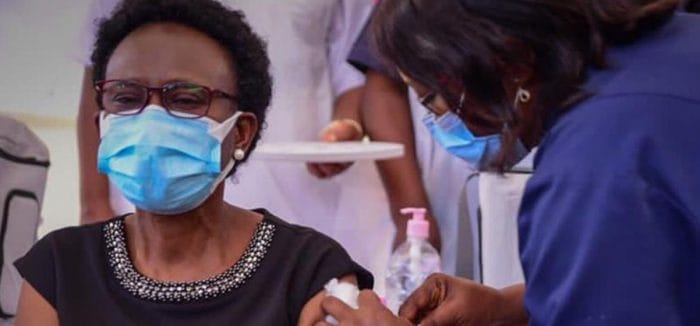
Only 34,139 Ugandans have been fully vaccinated against COVID-19, according to the Ministry of Health.
By URN
All those who have received two doses of the vaccine were among the first people vaccinated in the country. According to records from the health ministry, these persons where vaccinated between March 10 and April 3, 2021.
Getting two doses of the vaccines means that these persons now have 100 protection against the disease. When infected, they will not get severe forms of the disease and will also not be hospitalised.
A total of 672,487 persons who received the first dose are yet to get the second vaccine. According to the health ministry, they are not yet sure where other doses of AstraZeneca will come from. However development partners such as UNICEF and WHO are trying to get developed countries such as the US and the UK, who have vaccinated over 50 percent of their population to give the surplus to countries like Uganda.
During the state of the Nation address that took place on Friday, President Yoweri Kaguta Museveni revealed that the country is now looking at other vaccines following India’s decision to stop export of AstraZeneca.
According to the President, Uganda is trying to get the Johnson&Johnson, Sinovac and also the Cuban vaccine to get more people vaccinated against the disease. The vaccines just like the AstraZeneca one can be stored under normal registration temperatures.
Dr. Alfred Driwale, the programme manager of the Uganda National Expanded Programme on Immunization says the number of persons who have gotten the jab is encouraging. “This number is good. We hope it will increase when we get more vaccines next month,” he said.
According to the health ministry, another consignment of 175,000 doses of AstraZenec are expected to arrive in the country within a fortnight. Once the vaccines arrive, it is hoped the number of people who will get their second doses of the vaccine will increase.
“More people need to be fully vaccinated for us to be safe and maybe even go back to life as we knew it before the pandemic struck last year. Now we can’t with our few numbers of people who are fully vaccinated,” says Dr. Driwale.




